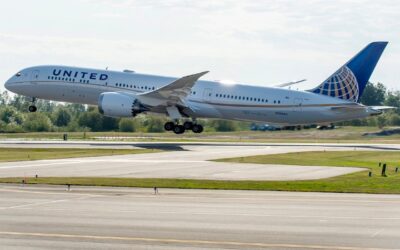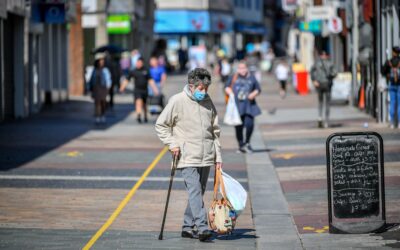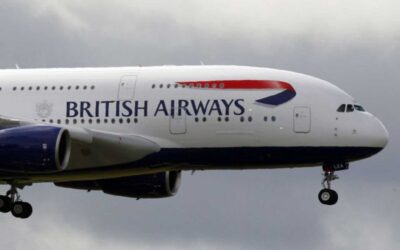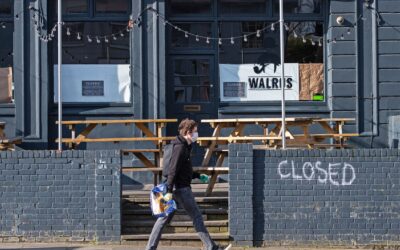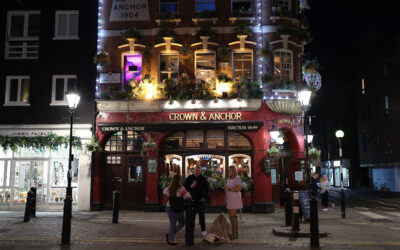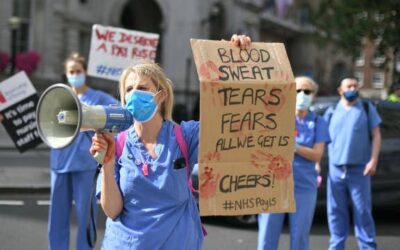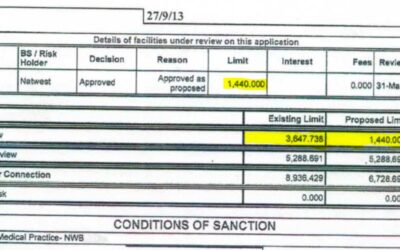After Dominic Raab’s police protection officer was suspended from duties after leaving his gun on a plane at Heathrow, the leading pilots’ union has criticised the foreign secretary’s choice of airline.The officer, who has not been named, was accompanying Mr Raab on United Airlines flight UA918 from Washington Dulles to London Heathrow.The Boeing 787 took off from the US capital on Thursday evening. British Airways flight BA216 departed on the same route later that evening.The foreign secretary’s plane arrived next morning at 6.31am at Heathrow, where the officer left the 9mm loaded pistol on board. BA has declined to comment on Mr Raab’s choice of airline. But Brian Strutton, general secretary of the British Airline Pilots’ Association (Balpa), said: “Maybe it’s too much to expect but I would like to see our foreign secretary travelling with a British airline rather than spending taxpayers money on an American one.Read more“There were alternative British flights available so what’s the excuse? It’s about time the UK government started showing a bit of support for UK aviation.”The choice may have been because of timings – the United flight left Washington and arrived in London nearly four hours earlier than the British Airways service – or cost.On a search conducted by The Independent, the lowest business-class return fare on British Airways for a short-notice trip from London to Washington DC is £6,220. The fare quoted by United was £375 higher. But the Foreign Office has contracts with airlines that are likely to offer better deals.The Foreign Office has declined to say how many people there were in the foreign secretary’s party, the class they flew in and the cost to the taxpayer of the flights. Some details are likely to be published next year as part of the “transparency data” for ministerial travel.The expenditure directly incurred by Mr Raab on a two-day trip to Washington DC in September 2019, including travel, accommodation and meals, was £19,371.On Wednesday the chief executive of British Airways told MPs that his airline is burning through £20m in cash per day, and flying only 18.7 per cent of passengers compared with 2019.Speaking to the Transport Select Committee, Alex Cruz said: “We’re still fighting for our own survival.”He hit out at the weekly changes to the government’s list of quarantine-exempt countries, which involves the Foreign Office and Department for Transport.“My network team will be waiting for the latest communication from the government with regards to which countries are actually going to go in quarantine.“We find ourselves today in a situation in which we’re having to make hundreds of [flight schedule] adjustments every single month as a consequence of all these country closures and our very own quarantine list.”Under what is known as the “Fly America Act,” people travelling on US government business are generally required to use only American air carriers.United Airlines has received at least $5bn (£3.9bn) in support from the US government since the coronavirus pandemic began.
The Independent Articles
Retail sales recover in August but UK high streets remain in trouble
UK retail sales rose for the fourth consecutive month in August, but high streets continue to struggle, with revenues at clothing stores remaining well below pre-pandmic levels, three months after stores were allowed to re-open.Sales volumes across online and traditional retailers were 4 per cent higher than they were in February, driven by DIY and household goods stores, official figures show. Recovery after the lockdown is slowing from 3.6 per cent in July to 0.8 per cent in August.Online sales are up 47 per cent since before lockdown, meaning even tougher competition for traditional retailers.
Clothing retailers have been particularly hard-hit, with sales down 16 per cent as millions of people stay working at home and forego summer holidays abroad.
DIY and homeware stores experienced the strongest growth with a 9.9 per cent increase in revenues.
Read more”Sales of household goods thrived as the demand for home improvement continued and, despite a dip this month, online sales remained high,” said Jonathan Athow, deputy national statistician for economic statistics at the Offcie for National Statistics.
“Overall, the switch to greater online sales means the high street remains under pressure.”
The ONS also reported that 51.5 per cent of food retailers said they saw a decrease in footfall between 10 August to 23 August, which it said could be linked to the reopening of other areas of the economy, such as restaurants and bars.Helen Dickinson, chief executive of the British Retail Consortium, said: “It is clear that the retail industry is entering a period of fragile recovery, with August showing the third consecutive month of growth.
“However, the recovery remains a mixed bag, with high growth in online sales while city centre shops suffered as a result of low footfall.”
Lisa Hooker, consumer markets leader at PwC, said: “After the stellar recovery in retail sales we saw in the past three months, it’s no surprise that the monthly rate of growth slowed in August.
“Being the second month of the high street reopening in full, much of the focus last month was on the hospitality and leisure sectors.
“The popularity of initiatives such as Eat Out To Help Out even lead to a rare slowdown in grocery sales growth.”
'We are still fighting for our survival', British Airways boss says amid decline in travel
The chief executive of British Airways has told MPs: “We’re still fighting for our own survival.”Speaking to the Transport Select Committee, Alex Cruz said: “Last week we flew 187,000 passengers. The same week in the previous year we flew almost a million.“We remain worried about the virus in the winter season. People are still afraid of travelling. We are having weekly changes to the quarantine list.“All the data that we get are still pointing at a slow recovery process.”He said BA is burning through £20m in cash per day, and that he has taken a one-third pay cut.Read moreBritish Airways has parked its entire fleet of Airbus A380 jets and is scrapping its Boeing 747 “Jumbo jet” fleet.Mr Cruz criticised the government’s policy of announcing new candidates for quarantine each Thursday and its refusal to allow testing at airports, saying: “The weekly [quarantine] announcement is incredibly disruptive – primarily for our passengers.”He called for “enhancing the current scheme to make it more consistent and deliver less change”.“We need more regional considerations in order to fly to places where the rates of infection are lower than in the UK.“If we could start [testing] tomorrow, it would help the British economy.”British Airways is among the airlines who have called for a test-and-quarantine pilot scheme on the world’s leading intercontinental air link, between London and New York.The government says it is looking at such an approach but has previously insisted that there is no viable alternative to 14 days of self-isolation.Influencer Charly Jordan apologises for travelling to Rwanda during “incorrect” time“We need some testing regime that will minimise the quarantine process,” Mr Cruz said.He said around 10,000 of the 42,000 staff at the start of the coronavirus pandemic will lose their jobs.Mr Cruz praised the “constructive and productive meetings” with the British Airline Pilots’ Association (Balpa) over job losses.But he said the other unions – Unite and the GMB – did not engage with British Airways.In response, the Unite assistant general secretary Howard Beckett said: “It is thanks to the immense work of Unite reps that British Airways has been forced to accept that it cannot indulge in the comprehensive fire and rehire policy that the airline intended.“But Alex Cruz has misled the transport select committee by indicating that fire and rehire is completely off the table. This needs to be corrected.“There are still too many BA workers facing threats to their wages and working life. These threats should be withdrawn today.“Draft agreements with British Airways will not be finalised by Unite until members have voted on them and agreed to changes in their contracts.“Even if agreements are reached and finalised in all of British Airways sectors, this does not herald industrial peace.“Any changes in contracts should have been of a temporary nature and once British Airways returns to profit, the cuts in pay and conditions should be immediately restored.“The Labour MP Ruth Cadbury said: “BA went worse and harder than its parent company IAG, and the other sister airlines, and also other UK airlines such as Ryanair, who treated its staff somewhat better.“BA still is after more taxpayer money in effect by seeking to pause on Air Passenger Duty”The Transport Select Committee has called for British Airways to be stripped of some of its take-off and landing slots at Heathrow.In 2000 BA had 36 per cent of the allocated slots at its main base, but now has around 50 per cent. Lufthansa at Frankfurt and KLM at Amsterdam have substantially higher proportions.British Airways is this week using 25 per cent of its available slots. The airline’s boss called for the “use it or lose it” rule to be relaxed over the winter.“If that slot relief is not provided for the winter season, we will have a number of airline bankruptcies, and there will be many, many thousands of jobs that would be lost,” said Mr Cruz.The British Airways boss also revealed that it took four years for the airline industry to recover after the financial crisis of 2007-2008, and that premium traffic – in Club World and First Class – had never reached the previous levels.
As the furlough scheme ends, what would an extension of state support for workers actually look like?
The government insists the coronavirus job retention scheme – known as furlough – which has been winding down since August will definitely end on 31 October.The timetable for winding down furlough, announced by the chancellor in May, was predicated on the assumption that the economy would be recovering strongly by now and that the virus would be under control.That assumption now looks increasingly questionable. A spate of local lockdowns and new national public health restrictions introduced this week – all of which are likely to have a negative economic impact on many businesses – have heaped pressure on the Treasury to put in place something to replace the furlough scheme in order to prevent joblessness spiking back to 1980s levels in the weeks and months ahead.
Tourist and consumer confidence suffering again after summer recovery, hospitality industry warns
Tourist and consumer confidence has begun to tail off again after a recovery in the summer months, representatives of the hospitality industry have warned.Jean-Philippe Monod, vice chair of UK Short Term Accommodation Association, told the House of Lords economic affairs committee that figures were again showing “a significant decline in searches and the bookings”.”We’re seeing the demand go down significantly. We see that the peak, that little boost that we’ve had is now over,” he said.Peers heard that traditional beach and rural destinations had done well during the summer while city locations and had done poorly as tourists adapted to social distancing changes.Kate Nicholls, CEO UK Hospitality, said there had been “a move to the rural, the coastal, the fresh air, and less so the towns and city centres:”.She added that London was in particular “catastrophically low for this time of year” because of the lack of commuters, international tourists, and cultural or sporting event.Watch moreMr Monod described the situation in London as “catastrophic”, adding: “Urban areas have suffered significantly and we’re now seeing the demand go down significantly.””There were some good parts, but they were pockets of good, and they were spread in the non-urban areas.”He said repeated changes to government advice with little transparency and forewarning had contributed to an undermining of confidence.”That is a point I’d like to stress; the traveller confidence that we’re seeing, that has gone down. The evidence in our system is that bookings are pretty much all made in the zero to 21 day timeframe … which means that consumers don’t have that confidence,” he said.”We are faced with a situation where the government advice is changing so frequently that people are just saying look, I’m not going to take the risk. That’s why we would advocate for more clarity on the process of having testing and lanes in to the United Kingdom rather than a blanket quarantine requirement with all the consequences.”Mr Monod said the government should end blanket quarantines from other countries, which would “allow the market to pick up”.The UK, as with other countries, has seen a significant rise in Covid-19 infections in recent weeks after a sustained fall going into the summer.Ms Nicholls of UK Hospitality said the government’s Eat Out to Help Out scheme was a good example of a measure that have improved confidence.
Coronavirus turns New York into a ghost townShow all 26
Small businesses handed lifeline as court rules insurers should pay out on some Covid-19 claims
Thousands of small businesses celebrated on Tuesday after a court ruled that insurers should pay out on some business-interuption claims connected to the coronavirus pandemic.A number of insurance firms had rejected almost all claims for lost trade relating to Covid-19, arguing that policies did not cover unprecedented restrictions imposed during lockdown.That left many small businesses facing huge losses.The Financial Conduct Authority brought a test case covering commonly used policy wordings in an attempt to resolve uncertainty over when insurers should pay out.Read moreThe City watchdog said that about 370,000 businesses and £1.2bn of business-interruption cover will be affected by the ruling. Tuesday’s High Court ruling is a “a significant step in resolving the uncertainty being faced by policyholders”, the FCA said.
However, the nuanced judgment is not a decisive victory for small businesses, as a significant proportion of business interruption policies are not covered.Both the FCA and the insurers affected could appeal over the decision.The judgment means that companies with policies covering loss which relates to disease or “denial of access” should be entitled to claim.Mike Cherry, chairman of the Federation of Small Businesses (FSB), welcomed the decision, which he said was a “vital first step”.”It can only be celebrated as a partial victory, however, as it still leaves many with little certainty around whether they will receive payouts for policies that have cost them thousands. And for many others with standard interruption cover, this judgement will have no bearing. “We echo the regulator’s call to insurers to reflect on the clarity provided by this judgement and do the right thing by policyholders, many of which are fearing for their futures after six months of serious disruption. They acted responsibly by taking out these policies, and having them honoured is crucial to encouraging more firms to do the right thing where insurance is concerned.”Read moreThe Hiscox Action Group, which has over 400 members and intervened in the High Court case, also welcomed Tuesday’s ruling.
The group’s solicitor, Richard Leedham from Mishcon de Reya, said: “Today’s judgment by the High Court is one of the most significant in recent years and will provide a lifeline for small businesses across the country.
“We joined the court case as we believed it was vital for businesses to have a voice in the proceedings and we are delighted they have finally been heard.”
Mark Killick, a Hiscox Action Group steering committee member, said: “Today’s judgment represents a huge victory for the Hiscox Action Group.”
He added: “The most important thing now is that the insurers accept this ruling and start to pay out rather than embark on a fruitless appeals process that will just cause more suffering for the very policyholders they were meant to protect.”
Coronavirus: Nearly 700,000 job losses during pandemic, new government data shows
The number of people in paid employment in the UK has fallen by 695,000 since March when the coronavirus lockdown began, according to official figures.The Office for National Statistics (ONS) said the rate of unemployment increased as another 36,000 jobs fell off payrolls across the country. It warned redundancies had increased “sharply” in July, even as lockdown restrictions eased.Meanwhile, unemployment increased by 62,000 to 1.4 million for the three months to July. The official quarterly unemployment rate rose marginally to 4.1 per cent – still low by historic standards. However, July showed a marked uptick in the proportion of people out of work and seeking employment rising 0.5 per cent to 4.4 per cent. Weekly figures, which are volatile, show that unemployment rose to 4.8 per cent in the last week of July, just before the Job Retention Scheme began to wind down from 1 August and employers had to start contributing towards furloughed workers’ national insurance and pension costs.Read moreYoung workers have been hit hardest with the number of 16 to 24-year-olds in employment falling 156,000 in the three months to July.Average weekly hours worked, seen by many analysts as a more accurate indicator of the impact of coronavirus on the labour market, was 866 million, down 184 million hours on the previous year and down 94 million hours on the previous quarter.Throughout May, June and July around 5.5 million people said they were working fewer hours because of “economic conditions”.More than 5 million workers were temporarily away from work at the end of July, with 2.5 million of those away for three months or more. Before the pandemic, an average of around 2.5 million were temporarily off work at any one time.It is these workers who ministers will be most concerned about as the furlough scheme comes to an end on 31 October and employers must decide whether to keep them on or not.Unions, business groups and MPs have all urged Rishi Sunak to limit job losses by introducing further, targeted support measures or extending the furlough scheme. So far, the chancellor has stuck to his position that the scheme will end as planned.The ONS said there were an estimated 434,000 vacancies in the quarter, rising 30 per cent from a record low in the quarter to June, but still significantly below pre-virus levels.Average wages were 1 per cent below their level a year ago, the ONS said.ONS director of economic statistics Darren Morgan said: “Some effects of the pandemic on the labour market were beginning to unwind in July as parts of the economy reopened.“Fewer workers were away on furlough and average hours rose.“The number of job vacancies continued to recover into August, too.“Nonetheless, with the number of employees on the payroll down again in August and both unemployment and redundancies sharply up in July, it is clear that coronavirus is still having a big impact on the world of work.”Tej Parikh, chief economist at the Institute of Directors, warned that the true extent of Covid-19’s impact on jobs is yet to emerge.“With the Job Retention Scheme winding down, cash-strapped firms will be struggling to support their staff,” Mr Parikh said.“Redundancies are only likely to increase as state support for employee wages ceases at the end of October. For many companies, demand remains very much limited, with local lockdowns and renewed restrictions adding to the difficulties.“The government must act quickly to counteract job losses and prevent the scarring effect of long-term unemployment. With youth unemployment increasing, the Kickstart Scheme targets a critical area, but the Treasury should go much further.”Dave Innes, head of economics at the Joseph Rowntree Foundation, agreed that more government intervention was needed to prevent a surge in unemployment.“Today’s figures give a foretaste of what’s to come if the government continues to take a one size fits all approach to unwinding the furlough scheme. There are worrying signs too that job losses are falling hardest on young people. This just isn’t right.“As a wave of unemployment gathers pace, the government should be extending furlough in the most at-risk sectors, not cutting it. Targeted, temporary support for workers in these sectors will protect them from being swept into poverty while keeping employers afloat until the worst of the economic storm has passed.”Rishi Sunak said: “This is a difficult time for many as the pandemic continues to have a profound impact on people’s jobs and livelihoods. That’s why protecting jobs and helping people back into work continues to be my number one priority.”
Will young workers be the victims of the decline of the office?
The primary motivation of government ministers for encouraging white collar workers to return to their offices seems to have been fears about the short-term impact of a surge in homeworking on city centre businesses that rely on the office trade.Many sandwich shops, restaurants and dry cleaners have seen their custom collapse since March as office workers have mostly shifted to working from home.
But another concern that has been raised is the negative longer-term impact of more working from home on the training, development and welfare of younger workers and also employees joining an organisation.
“Learning face to face in the workplace is an unbeatable way to build skills and confidence. We must not deprive the next generation of this opportunity,” argues Carolyn Fairbairn, director general of the Confederation of British Industry.Read more“For younger workers, the office is invaluable,” agrees Richard Kauntze, the chief executive of the British Council for Offices.“Most learning happens informally, through seeing how experienced colleagues operate and asking them questions. Most networks are also formed casually, enhanced by chance conversations, rather than forced, awkward Zoom calls. Without an office, these opportunities are hugely diminished.”
On top of this, many point out, is the fact that working from home for many younger white-collar workers in flats or cramped house shares can be a very different – often much less comfortable – experience than that of their older colleagues and their managers who have larger residences.
“An ironing board in the bedroom does not make a great workspace,” says Ms Fairbairn.Combine this physical discomfort with the sense of isolation some people report from working from home, and also the barriers to making friendships with colleagues, and some fear there are the ingredients for a mental health crisis for younger white collar workersDespite the government’s return to the office campaign, many firms are signalling that working from home will be much more common in the wake of this crisis. And this is a shift that many white collar workers clearly welcome.So is a major shift to homeworking set to pile further harm on young people on top of the brutal jobs market into which many will graduate in the coming years? And what can and should firms and organisations be doing to mitigate it?Researchers agree that workers do receive a great deal of training informally in offices.
Daniel Beunza, an associate professor of management at The Business School (formerly Cass), has studied how financial firms’ trading desks operate from an anthropological perspective.“There are also lots of benefits to informal interaction – something a prearranged video call cannot replicate,” he says, pointing to the ability of new employees in an office to directly observe how colleagues behave, pick up important information, absorb the unwritten rules of the organisation and even its ethical values.
Just by calling someone a mentor doesn’t make that person into a genuine mentorDaniel Beunza“For juniors this is how they learn. Organisations need to recognise that this is an issue and something needs to be done to replace the training and learning that would otherwise be there.”Mr Beunza says managers and supervisors will probably need to change their mindsets and make much more time for junior colleagues – whether digitally or when they are together in the office – and “make sure they’re not just disappearing”.
A natural step might be for offices to create more mentorship schemes. But this, he stresses, needs to be a proper relationship.
Read more“Just by calling someone a mentor doesn’t make that person into a genuine mentor,” says Mr Beunza. “Firms cannot conclude we’ve got mentorships therefore we’re done with the problem.”William Gosling, who advises clients on organisational transformation at the professional services network Deloitte, says he is more optimistic than many about the ability of companies and individuals to look after and develop younger workers in a new era of more homeworking.He cautions against the tendency for older workers to assume that because they learned the ropes in their company in a certain way – “that’s how I picked these things up” – that this is the only way that it can be done.
Mr Gosling argues that new digital technologies, with smart collaborative screen-sharing elements, used in the right way can replace some of the informal learning that takes place in a physical office.“You’ve got to be prepared to try different things and use the right technology for the type of thing you’re trying to do. We’re in the foothills of how this is going to evolve,” he says.
Arcadia: Sir Philip Green's company U-turns to pay full salaries for staff facing redundancy
Sir Philip Green’s fashion chain, Arcadia, has U-turn on its plans to pay staff facing redundancy as little as half their notice salary.The group, which include major brans like TopShop and Dorothy Perkins, will now pay full whack to head office workers at risk of losing their jobs.Sir Philip’s net worth is some £930m, according to the latest edition of The Sunday Times’ rich list.An Arcadia spokesperson said the move would affect about 300 people and issued a grovelling apology. Bosses were “extremely sorry to all those individuals impacted for the distress that we have caused and apologise unreservedly”, they said.In a statement, Arcadia Group said: “We recently implemented a policy for those employees who are working their notice on furlough to receive their furlough pay instead of their full pay.
Read more”We got this decision wrong and the board has today amended this policy to ensure all affected employees will receive their full pay.”They will be notified of this decision immediately.”The Unite union said it had threatened to take legal action for illegal deduction of earnings on behalf of more than 40 head office staff.
It welcomed the promise to pay head office staff full pay during their notice period and called it an ” amazing victory”.Arcadia Group became part of Taveta Investments, owned by Sir Philip and his family, in 2002.
Its statement said executives had been forced to make “many tough decisions” during the coronavirus pandemic, including the restructuring of its offices.It has looked to protect the welfare of its staff and customers and observed all guidelines and legislation during, it added.
UK news in picturesShow all 50
RBS altered customers’ files ahead of independent review into swaps mis-selling, documents show
Royal Bank of Scotland employees altered customers’ files ahead of an independent review into mis-selling of toxic interest-rate hedging products – potentially helping the bank to avoid paying millions in compensation, documents reveal.The files related to interest-rate swaps which the bank said would protect clients against rising rates. Instead, the bank generated huge profits and then, as rates plummeted, customers were saddled with crippling debts that in many cases led to bankruptcy.In the case of a partnership of NHS doctors that had been sold a swap on a loan for building a new surgery, RBS staff altered information on their file ahead of the review carried out by KPMG, codenamed Project Rosetta. Internal files show that RBS expected the doctors to lose up to £3.7m on the swap it sold them. Days before the review, this figure was altered to £1.44m – then, shortly after the files had been submitted, the figure was increased to £3.5m.
Steve Middleton, a consultant for Modus Mediation who has been acting on behalf of the doctors, said thousands of customers have been wrongly denied billions of pounds in redress for mis-sold swaps. He believes that hundreds of those were doctors’ surgeries, which RBS targeted to sell swaps to, hoping to secure stable long-term returns from taxpayers’ cash that the NHS used to cover GP surgeries’ rents.According to Mr Middleton, the case raises the prospect that other files were tampered with ahead of a review that saw banks pay out £2.2bn in redress to customers. He believes that several billion pounds more should have been paid out.

